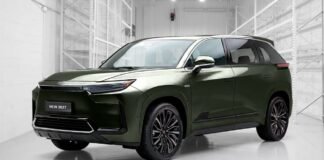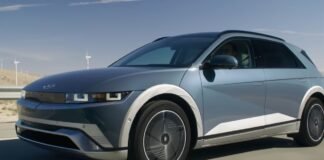The government has made a controversial move with the Environmental Protection Agency (EPA) approving a last-minute ban on car sales by 2035. This decision comes at a time when political administrations are about to shift from Biden to Trump, and it defies the will of millions of people who don’t want to be forced into buying electric cars.
While those who choose to buy EVs are welcome to do so, the concern is the government’s attempt to mandate electric vehicles. The EPA approved two waivers under the California Clean Air Act, granting California the authority to ban new gasoline-powered car sales by 2035.
A Nationwide Impact

This decision will not be limited to California alone. It will affect the entire country, as 17 states have adopted California’s rules. Since no car brand will manufacture different models for just certain states, every car manufacturer will be forced to comply with these regulations, even though they lose money on every electric vehicle they sell.
Many believe this decision marks the destruction of the car industry by its own government. The National Auto Dealer Association (NADA) has expressed deep disappointment and is pushing back against these new rules. NADA has long supported a single, national fuel economy standard that is economically feasible and does not limit consumer choice.
NADA’s Response to the Ban
The NADA’s response to the Biden administration’s decision has been particularly strong. They’re calling for the incoming Trump administration to revoke this “anti-consumer” mandate.
Chad Thompson, the President of the American Fuel and Petroleum Manufacturers (AFPM), also criticized the decision, pointing out that the Biden administration is now mandating what kinds of cars Americans can drive, despite earlier claims to the contrary. Thompson argued that the new policy would harm consumers by limiting their ability to buy gasoline-powered cars and raising transportation costs nationwide.
The Details of California’s Emissions Mandate
Under the new waiver granted to California, the state is required to meet a zero-emission vehicle mandate starting in 2025. This mandates that 35% of all new vehicle sales in 2026 must be zero-emission vehicles, with most of those being battery electric vehicles (BEVs).
This percentage will continue to increase, and by 2035, 100% of all new cars, trucks, and SUVs sold in California and the 17 other states that follow California’s regulations will have to be zero emissions.
However, this ambitious mandate is a significant challenge, as nationwide sales of battery electric vehicles currently sit at just 9%, far below the 35% requirement set for next year.
Challenges for Consumers and the Auto Industry
Toyota has raised concerns about the California regulations, arguing that by requiring such a large percentage of sales to be zero-emission, California’s rules undermine the potential of other alternative powertrains that could also help reduce carbon emissions quickly.
Car dealers also face major challenges. They’ll have to sell more zero-emission vehicles than ever before, which could mean fewer traditional vehicle options for consumers. Many buyers may not be ready to adopt EVs due to affordability or practical concerns, leaving them with fewer options on the lot.
Legal Battles and Political Timing
The timing of the EPA’s decision is crucial. Just hours after the EPA approved the waiver, the Supreme Court agreed to hear a case from energy, agricultural, and biofuels groups that are challenging California’s mandate.
This could pose a threat to the ban, and many see the EPA’s move as a countermeasure to ensure that the ban remains intact before any potential legal challenges arise. Critics argue that the decision is an example of government overreach that disregards the will of the American people, especially those who prefer to keep the option of gasoline-powered cars.
The Future of Consumer Choice and the Auto Industry
If the new rules go through, the auto industry could face significant disruptions. Automakers will likely be forced to funnel electric vehicles to the states that follow California’s rules, severely limiting the vehicle choices available to consumers in other states.
Critics argue that this could ultimately hurt the auto industry by pushing consumers away from buying new cars altogether.
What’s Next? A Reversal Under the Trump Administration?
Many critics hope the new rules will be overturned. President-elect Donald Trump has indicated that he plans to revoke the federal EV requirements and the waiver granted to California by the Biden administration. A reversal would mark a major policy shift, signaling a potential rollback of these mandates.


